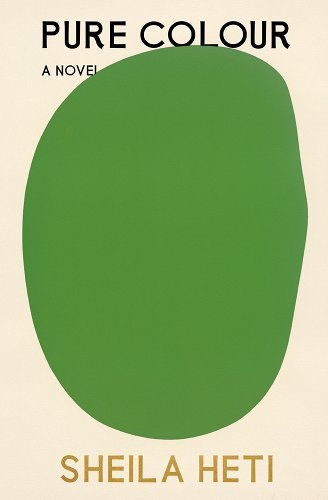After God created the heavens and the earth, he stood back to contemplate creation, like a painter standing back from the canvas.
This is the moment we are living in—the moment of God standing back. Who knows how long it has been going on for? Since the beginning of time, no doubt. But how long is that? And for how much longer will it continue?
You’d think it would only last a moment, this delay of God standing back, before stepping forward again to finish the canvas, but it appears to be going on forever. But who knows how long or short this world of ours seems from the vanishing point of eternity?
Now the earth is heating up in advance of its destruction by God, who has decided that the first draft of existence contained too many flaws.
Ready to go at creation a second time, hoping to get it more right this time, God appears, splits, and manifests as three critics in the sky: a large bird who critiques from above, a large fish who critiques from the middle, and a large bear who critiques while cradling creation in its arms.
*
People born from the bird egg are interested in beauty, order, harmony and meaning. They look at nature from on high, in an abstracted way, and consider the world as if from a distance. These people are like birds soaring—flighty, fragile and strong.
People born from a fish egg appear in a flotation of jelly, and this jelly contains hundreds of thousands of eggs, where the most important thing is not any individual egg, but the condition of the many. For the fish, it’s less any one individual egg that concerns them than that eggs are laid in the best conditions, where the temperature is most right, and the current most gentle, so the majority might survive. For fish, it’s the collective conditions that count. A person hatched from a fish egg is concerned with fairness and justice here on earth: on humanity getting the temperature right for the many. One thousand eggs are the concern of a fish, whereas the person hatched from the egg of a bear clutches one special person close, as close as they possibly can.
A person born from a bear egg is like a child holding on to their very best doll. Bears do not have a pragmatic way of thinking, in which their favorites can be sacrificed for some higher end. They are deeply consumed with their own. Bears claim a few people to love and protect, and feel untroubled by their choice; they are turned towards those they can smell and touch.
People born from these three different eggs will never completely understand each other. They will always think that those born from a different egg have their priorities all wrong. But fish, birds and bears are all equally important in the eye of God, and it wouldn’t be a better world if there were only fish in it, and it wouldn’t be a better world if there were only bears. God needs creation critiqued by all three. But here on earth, it is hard to believe it: fish find the concerns of the birds superficial, while birds are made impatient by the critiques of the fish. Nothing makes a person feel like their life’s work—or their self—is less seen than when it’s being judged by someone from a different egg.
Yet birds should be grateful that someone is making the structural critique, so they don’t have to. And fish should be grateful that someone is making the aesthetic critique, so they can focus on the structural one.
*
God is most proud of creation as an aesthetic thing. You have only to look at the exquisite harmony of sky and trees and moon and stars to see what a good job God did, aesthetically. So those born from the bird egg are the most grateful of all. Those born from the fish egg are the most upset, and those born from the bear egg aren’t too happy, either.
Perhaps God shouldn’t conceive of creation as an artwork, the next time around; then he will do a better job with the qualities of fairness and intimacy in our living. But is that even possible—for an artist to shape their impulse into a form which is not, in the end, an art form?
*
This particular story concerns a birdlike woman named Mira, who is torn between her love for the mysterious Annie, who seems to Mira a distant fish, and her love for her father, who appears as a warm bear.
*
The heart of the artist is a little bit hollow. The bones of the artist are a little bit hollow. The brain of the artist is a little bit hollow. But this allows them to fly. Those who aren’t hatched from the bird egg might wonder why it was birds—who center their thoughts on their own selves—who were born to give the world its metaphors, pictures and stories. Why should it have been given to the birds?
*
A bird can learn to walk on the ground like a bear, and they can spend their whole life walking—but they will never be happy this way. While a fish on the shore gasps for breath, desperate to get back to the sea.
__________________________________
Excerpted from Pure Colour by Sheila Heti. Published by Farrar, Straus and Giroux. Copyright © 2022 by Sheila Heti. All rights reserved.













